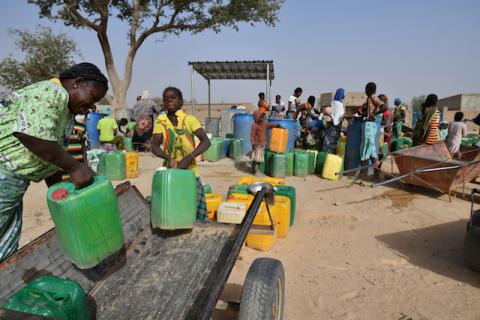Advertisement
Burkina Faso farming town struggles to cope with fallout of violence
PISSILA, Burkina Faso (Reuters) - Two years ago, Pissila was a quiet farming town in Burkina Faso, unfamiliar with the violence that was stirring further north. Now an influx of displaced people has changed life dramatically for its 15,000 inhabitants.
As deadly attacks on civilians by jihadist groups with links to al Qaeda and Islamic State have surged, 30,000 people have poured into the town seeking refuge, trebling the population, straining resources and leaving authorities struggling to cope.
Much of the work of housing the newcomers has been shouldered by ordinary people, such has been the speed of the rise in violence in a once calm country.
The chaos caused by home-grown insurgents has coincided with a spillover of jihadist groups from Mali. Hundreds have died in attacks in Burkina over the past year, many of which have had a ethnic or religious bent, and large areas of the country are out of government control.
Aid organizations and charities have rushed to help, and tents have been set up for the displaced in Pissila by an aid organization called HELP, but many say it is not enough in a country where nearly one million have fled violence over the past year.
"Almost all of the families [in Pissila] are hosting at least one displaced family. Some families have taken in around 80 people. So that is putting pressure on their way of life. It changes everything ... for them," said Pissila prefect Simplice Traore.
Lines snake outwards from the town's central water well and from a food distribution centre set up by the U.N.'s World Food Program. Residents' houses are crammed with people, many of whom sleep dozens to a small room on thin mats among piles of emergency water or food supplies stacked against the walls. The unlucky ones sleep outside.
Medical centres are full, said Traore, and the sick and elderly go untended, resting where they can out of the hot sun that sucks moisture from the parched surrounding farmland. There is no room for more children in the school and an estimated 2,000 children do not attend, he said.
Alphonse Sawadogo made the 15 km journey to Pissila on foot on Jan. 17 after an attack by gunmen on motorbikes forced him to flee his home village.
"It is truly sad," said the 52-year-old farmer. "They killed a youth. They set fire to the school. They arrived in a part of the village where houses were close to each other and started shooting."
(Writing by Edward McAllister; Editing by Giles Elgood)



















Add new comment